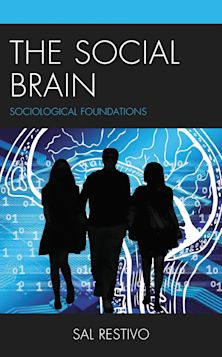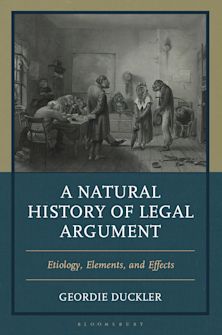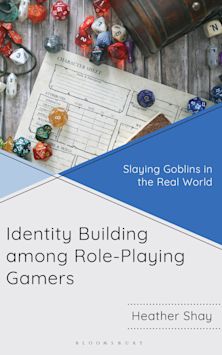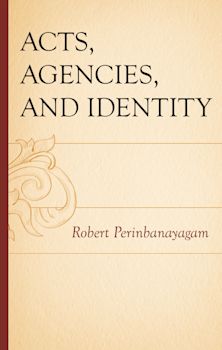- Home
- ACADEMIC
- Sociology
- Sociology - Other
- Interrupting Violence
Interrupting Violence
One Man's Journey to Heal the Streets and Redeem Himself
Interrupting Violence
One Man's Journey to Heal the Streets and Redeem Himself
You must sign in to add this item to your wishlist. Please sign in or create an account
Description
USA Today Bestseller
Part memoir and part call to action, Interrupting Violence is a blueprint for cities across America looking for a new way to address community violence. Readers will be energized by the book Kirkus Reviews calls a "heartfelt, authentic guide for combatting community violence.”
For over a decade, Cobe Williams has been a violence interrupter, a highly trained conflict resolution expert working to stop the killing. Alongside thousands of workers across the country, many of whom he trained, Cobe intervenes in street conflicts before they result in murder. Interrupting Violence follows his evolution from gang leader to vanguard of a social justice movement. More than a memoir, Interrupting Violence spans three generations of trauma to portray a radically optimistic vision for addressing urban violence.
Born into the notorious Black Disciples, Cobe became a drug dealer, hustler, and shot-caller. His father, an influential gang member, was murdered before Cobe turned eleven. Five men, his father’s so-called friends, beat him to death in the lobby of a public housing project. Cobe spent years seeking answers about what happened that night.
As Cobe rose through the ranks of the Black Disciples—at one time commanding over one hundred men throughout the city while still in high school—a gang war turned his world upside down. Its escalation overshadowed his ascent. Stoked by police, who fanned the conflict’s flames, the war would engulf Cobe’s friends and family, nearly costing him his life. Ultimately, Cobe would end up behind bars for attempted murder, a crime he didn’t commit.
Interrupting Violence follows Cobe as he undertakes his redemption journey, offering new hope for the nation’s most violent communities. As the country wrestles with the inequities exposed by the coronavirus pandemic and the complex intersections of urban violence, racial injustice, police brutality, and poverty in the aftermath of George Floyd’s murder, this book provides an inspiring blueprint. Cobe’s story demonstrates how the country can resolve the issues plaguing our inner cities, taking readers into an often misunderstood and misrepresented aspect of the Black experience in America.
Table of Contents
Foreword by Joakim Noah
Introduction
PART I: BORN INTO IT
1 One Chicago Summer
2 Cadillac Goalposts
3 Navigating Borderlands
4 Ain’t Too Dumb
5 The Most Dangerous Gas Station in America
6 A Chicago Winter
7 Strategies for Resolving Conflict
8 After My Father’s Murder
9 On the Trail of Big Folks
10 The Professional Gangster
PART II ALL OUT WAR
11 The Stickup Man
12 At My Front Door
13 How This Could’ve Played Out
14 Escalations
15 How This Could’ve Played Out, Part II
16 A Shoot-Out and a Frame-Up
PART III: PATH TO PEACEKEEPING
17 History Repeating Itself
18 Wild Wild
19 Chicago’s Hidden History
20 Revenge Is Hardwired
21 The Start of Something
22 Healing Wounds
23 A New Life
PART IV LOOKING UPSTREAM
24 Game Changer
25 The National Program
26 One City, One Game
27 The New York City Crisis Management System
28 Real Chicago
29 Group Mediations
30 Righting the Upside-Down World
Epilogue: Anywhere, USA: The Future
Notes
Bibliography
About the Authors
Product details
| Published | 02 Jul 2024 |
|---|---|
| Format | Slipcase Hardback |
| Edition | 1st |
| Extent | 328 |
| ISBN | 9781538166871 |
| Imprint | Rowman & Littlefield Publishers |
| Illustrations | 16 BW Photos |
| Dimensions | 237 x 160 mm |
| Publisher | Bloomsbury Publishing |
About the contributors
Reviews
-
A stirring account from the front lines of urban violence prevention. Writing with Gryniewicz, Williams alternates between frank discussions of the challenges faced by anti-violence ‘interrupters’ performing conflict mediation in Chicago’s resource-poor Black neighborhoods and a memoir about his own improbable transformation from a second-generation member of the Black Disciples. Alongside other aspects of restorative justice, the movement gained visibility following the acclaimed 2011 documentary The Interrupters, in which Williams appeared. In the foreword, director Alex Kotlowitz writes, ‘It’s formally known as community violence intervention, but that doesn’t begin to capture the scope of what Cobe and others do as they walk their communities with an open heart and a quiet fury stemming from their belief that things need not be this way.’ Williams later adds, ‘Community violence intervention is a growing public safety movement that stops shootings and killings on the front end. It uses formerly incarcerated gang members as ‘credible messengers’ to interrupt violence.’ The narrative presents a vivid family history, including intense vignettes like his own father’s murder following success as a drug dealer, alongside an ongoing account of the complex networking involved in the conflict resolution efforts of organizations like CeaseFire (since renamed Cure Violence), which provide “a model for this approach borrowed from the discipline of public health rather than criminology.” Indeed, during the pandemic, writes the author, ‘we moved from solely focusing on violence prevention to serving as community health workers.’ Following the police murder of George Floyd and subsequent uprisings, ‘the community violence intervention model, which I had been promoting for over a decade, reached new prominence.’ …Williams is deeply perceptive about brutal urban realities, and he dismantles assumptions rooted in implicit bias with academic rigor and effective storytelling. A heartfelt, authentic guide for combatting community violence.
Kirkus Reviews
-
Cobe's story is a testament to the belief that nobody is ever lost. Everyone can have a second chance. Everyone can turn their life around and do something positive. Cobe was a product of his environment. Now, he is making things happen all over the country—all over the world. He has made a real impact.
Matt Forte, former running back for the Chicago Bears
-
Now, even more necessary, to hear the voices directly from the Street . . . where everywhere, the killing is happening.
Leigh B. Bienen, senior lecturer, Northwestern University School of Law; author Florence Kelley, Factory Inspector in 1890s Chicago, and The Children
-
Cobe's journey unfolds as a compelling narrative of challenges and aspirations, a testament to enduring perseverance and transformative triumph. This book is a beacon for those who have navigated the rough terrains of life, seeking a path to brighter horizons. I advocate for its reading, especially among the youth emerging from comparable circumstances. They will find a mirror in Cobe's battles, drawing inspiration to reach the heights of their own potential.
Tony Allen, former NBA player for the Boston Celtics and Memphis Grizzlies
-
From the Foreword: I don’t want to give away Cobe’s story, but suffice it to say I marvel at his journey, and revel in his companionship. His personal journey is one of heartbreak and loss, but also one of an abundance of joy and redemption. I hope in these pages you, like I, will come to treasure his company, that you will come to understand the true capacity of the human heart, that you will get at least a taste of what it means to have Cobe by your side.
Alex Kotlowitz, producer of The Interrupters and author of The Other Side of the River and There Are No Children Here
-
From the Foreword: As a Violence Interrupter, sought-after national expert, speaker, trainer, and leader, he has more insight into the subject than most thinkers. … Cobe Williams is the real deal. … He lived the life, survived these events, transformed himself, and returned to the community to help heal it. He was part of the problem, and now he is part of the solution.
Joakim Noah, former professional basketball player, Chicago Bulls


































